Synopsis
David Runciman tells the story of the 1945 election and the dawn of a new age. Why did Winston Churchill find himself so decisively rejected by the electorate?
- Programme: Politically
- Series: Postwar
- Episode: 1: The Rejection
- Channel: BBC Radio 4
- Broadcast year: 2025
- History
Licence: ERA Licence required
UK only
Staff and students of licensed education establishments only
Cannot be adapted
Add Notes
More clips from Politically
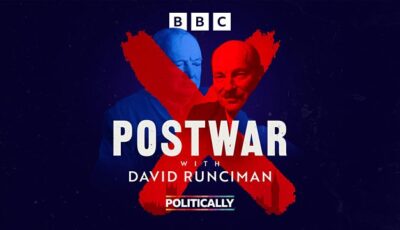
Postwar: E10: India and Empire | Politically
Postwar: E10: India and Empire | Politically
The question of self-government for India would have to be confronted when war was over.

Postwar: E11: Homes for Heroes | Politically
Postwar: E11: Homes for Heroes | Politically
In the end, the election was fought and decided over two main issues: demobilisation and housing.

Postwar: E12: Art, War and Propaganda | Politically
Postwar: E12: Art, War and Propaganda | Politically
With the formation of the Arts Council in 1945, on-going state patronage of the arts began.

Postwar: E13: From Yalta to Potsdam | Politically
Postwar: E13: From Yalta to Potsdam | Politically
Between the Yalta and Potsdam conferences, everything changed.

Postwar: E14: United Nations | Politically
Postwar: E14: United Nations | Politically
Both main parties supported the United Nations, but they disagreed about what that meant.

Postwar: E15: Debt to America | Politically
Postwar: E15: Debt to America | Politically
In 1945, Britain was the most indebted country in the world.

Postwar: E16: The Result | Politically
Postwar: E16: The Result | Politically
The immediate result of the general election was silence: a three-week hiatus.

Postwar: E17: A New Jerusalem? | Politically
Postwar: E17: A New Jerusalem? | Politically

Postwar: E18: Churchill: Lion in Winter | Politically
Postwar: E18: Churchill: Lion in Winter | Politically
What happened to Winston Churchill in the years after the 1945 general election?

Postwar: E19: Post-postwar | Politically
Postwar: E19: Post-postwar | Politically
When did the postwar period end?

Postwar: E2: Mr Churchill and Mr Attlee | Politically
Postwar: E2: Mr Churchill and Mr Attlee | Politically
With the war in Europe at an end, Churchill and Attlee became fierce election rivals.

Postwar: E20: What if? | Politically
Postwar: E20: What if? | Politically
What would Britain have been like if Winston Churchill had won the 1945 general election?

Postwar: E3: The Beveridge Report | Politically
Postwar: E3: The Beveridge Report | Politically
William Beveridge's plan was an answer to the question of what we were fighting for.

Postwar: E4: Public Opinion | Politically
Postwar: E4: Public Opinion | Politically
How could politicians know what voters were thinking in 1945?

Postwar: E5: The Soldiers' Election | Politically
Postwar: E5: The Soldiers' Election | Politically
During the 1945 election, there were still almost five million servicemen and women.

Postwar: E6: Appealing to Women | Politically
Postwar: E6: Appealing to Women | Politically
How did the election reflect the dramatically changed working lives of women?

Postwar: E7: The Labour Manifesto | Politically
Postwar: E7: The Labour Manifesto | Politically
Uniquely in modern British history, the 1945 Labour Manifesto was a genuine bestseller.

Postwar: E8: Healthcare for All | Politically
Postwar: E8: Healthcare for All | Politically
The war changed many things, and access to healthcare was one of them.

Postwar: E9: Churchill's 'Gestapo' Broadcast | Politically
Postwar: E9: Churchill's 'Gestapo' Broadcast | Politically
Winston Churchill's first election broadcast in 1945 might be remembered as his greatest gaffe.
More resources about Twentieth century warfare
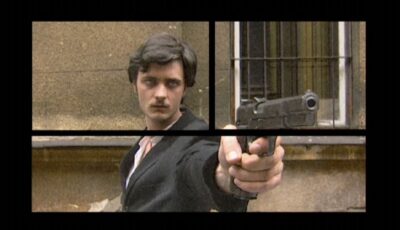
S1E2: Assassination of Archduke Franz Ferdinand | Days That Shook the World
S1E2: Assassination of Archduke Franz Ferdinand | Days That Shook the World
How the duke's death led to the start of the First World War.
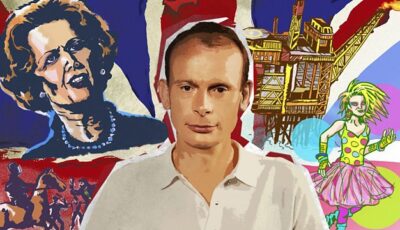
1: Advance Britannia | Andrew Marr's History of Modern Britain
1: Advance Britannia | Andrew Marr's History of Modern Britain
Andrew Marr revisits Britain in 1945 and finds the country victorious but nearly bankrupt, beginning a battle ...
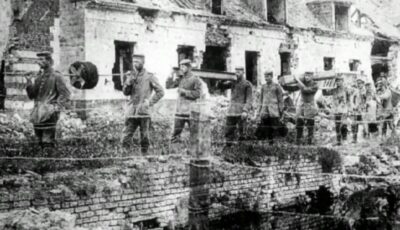
The Somme: From Defeat to Victory
The Somme: From Defeat to Victory
Drama-documentary which offers a new perspective on the most infamous battle of World War I, revealing how it was on the Somme that the Bri...
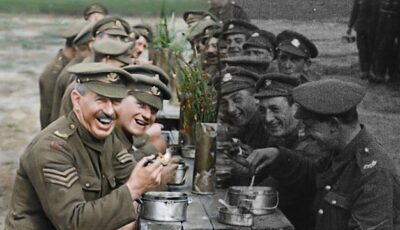
They Shall Not Grow Old (2018)
They Shall Not Grow Old (2018)
Transforming archive footage more than a century old, Peter Jackson brings to life the people who can best tell the story of World War I: the ...
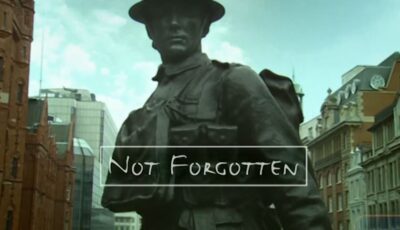
7: Soldiers of Empire | Not Forgotten
7: Soldiers of Empire | Not Forgotten
In this special edition of Not Forgotten, Ian Hislop uncovers the overlooked stories of soldiers from across the British Empire who fou...
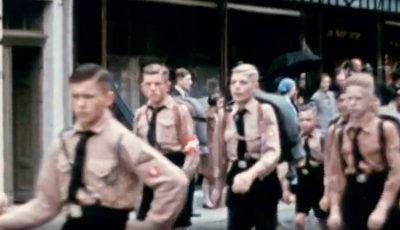
German youth | The Dark Charisma of Adolf Hitler
German youth | The Dark Charisma of Adolf Hitler
Hitler targeted the German youth, he wanted to indoctrinate them with Nazi ideology as early as possible.
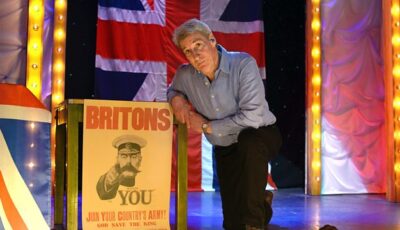
Learning Zone | Britain's Great War
Learning Zone | Britain's Great War
Jeremy Paxman traces the effects of the First World War on Britain. This was a total war which dragged in civilians as well as soldiers, ...
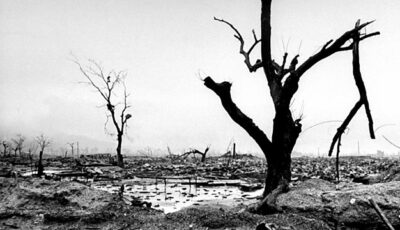
S1E4: Hiroshima | Days That Shook the World
S1E4: Hiroshima | Days That Shook the World
Documentary recalling 6 August 1945, when the atom bomb was dropped on Hiroshima, with testimony from American colonel Paul Tibbe...
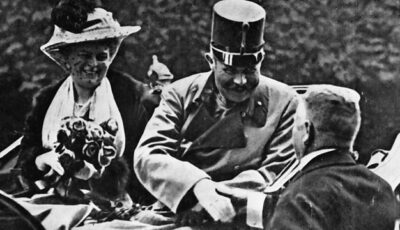
To Arms | The First World War
To Arms | The First World War
The merciless pattern of the war was set early on, by Austro-Hungarian atrocities against Serbian civilians.

1: War Comes to Britain | Britain's Great War
1: War Comes to Britain | Britain's Great War
Jeremy Paxman presents a four-part documentary charting how the First World War affected Great Britain, with this episode focus...
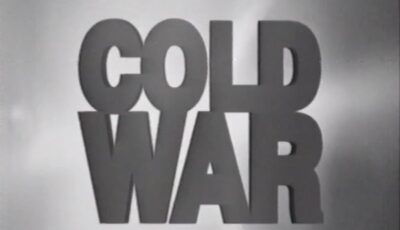
14: Red Spring: 1960s | Cold War
14: Red Spring: 1960s | Cold War
Likewise the Soviet Union started the decade with growing openness and optimism. There was also an emerging cohort of youth with no memory o...
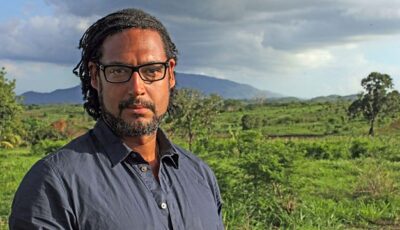
2: Foreign Legions | The World's War: Forgotten Soldiers of Empire
2: Foreign Legions | The World's War: Forgotten Soldiers of Empire
In part two, historian David Olusoga explains how the First World War spread far beyond the mud and trench...
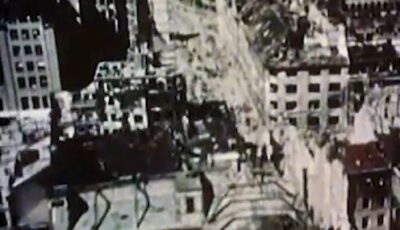
2: Hungary 1956 | History File
2: Hungary 1956 | History File
Compilation of secondary schools programme about the Cold War, featuring Berlin Crisis, Hungarian Uprising, rise of Soviet leader Nikita Khrus...
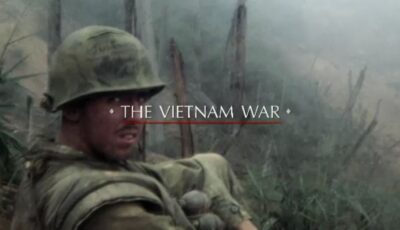
2: Riding the Tiger (1961-1963) | The Vietnam War
2: Riding the Tiger (1961-1963) | The Vietnam War
President Kennedy and his advisers wrestle with how deeply to get involved in South Vietnam. As the increasingly autocratic...

2: The War Machine | Britain's Great War
2: The War Machine | Britain's Great War
With the country unprepared for war, the whole population is enlisted to turn Britain into a war machine.

3: Marshall Plan: 1947-1952 | Cold War
3: Marshall Plan: 1947-1952 | Cold War
For both altruistic and self-serving purposes, the United States provides massive grants of aid to the countries of Europe in the form...
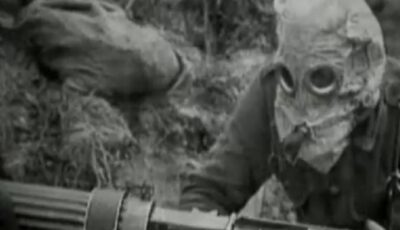
6: Making Germany Pay | History File
6: Making Germany Pay | History File
In this section we look at the traumatic years of the Weimar Republic and the years 1918 to 1929.

6: The Men Who Wouldn't Fight | Not Forgotten
6: The Men Who Wouldn't Fight | Not Forgotten
In this special edition of Not Forgotten, Ian Hislop explores the powerful and often overlooked stories of conscientious object...
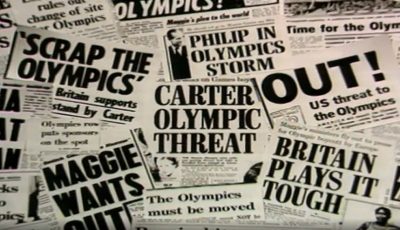
Boycott by the United States | Moscow 1980: The Cold War Olympics
Boycott by the United States | Moscow 1980: The Cold War Olympics
As politics and sport collided head on, athletes faced tough dilemmas.
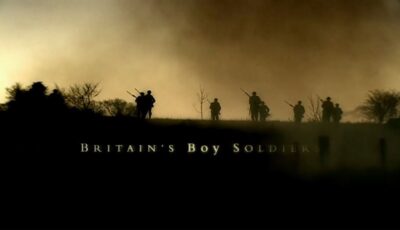
Britain's Boy Soldiers | Secret History
Britain's Boy Soldiers | Secret History
Documentary looking at the large numbers of underage volunteers during the first world war - some 250,000 - and how the war office an...
